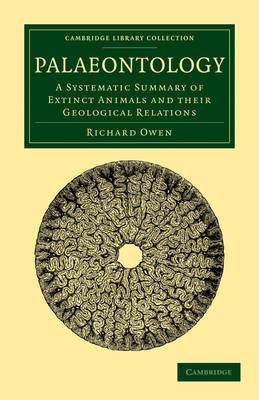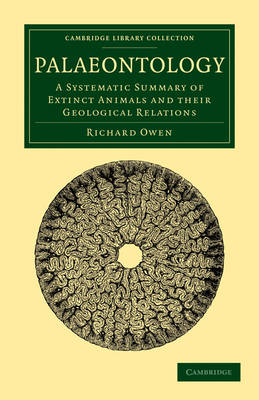
- Afhalen na 1 uur in een winkel met voorraad
- Gratis thuislevering in België vanaf € 30
- Ruim aanbod met 7 miljoen producten
- Afhalen na 1 uur in een winkel met voorraad
- Gratis thuislevering in België vanaf € 30
- Ruim aanbod met 7 miljoen producten
Zoeken
€ 43,45
+ 86 punten
Uitvoering
Omschrijving
Richard Owen (1804-1892) was a contemporary of Darwin, and like him, attended the University of Edinburgh medical school but left without completing his training. His career as an outstanding palaeontologist began when he was cataloguing the Hunterian Collection of human and animal anatomical specimens which had passed to the Royal College of Surgeons in London. His public lectures on anatomy were attended by Darwin, and he was entrusted with the classification and description of the fossil vertebrates sent back by Darwin from the Beagle voyage. He was responsible for coining many of the terms now used in anatomy and evolutionary biology, including the word 'dinosaur'. Palaeontology (published in 1860) defines, describes and classifies all the fossil animal forms then known, and discusses the origin of species, commenting on the theories of Buffon, Lamarck, the then anonymous author of Vestiges of Creation, Wallace and Darwin.
Specificaties
Betrokkenen
- Auteur(s):
- Uitgeverij:
Inhoud
- Aantal bladzijden:
- 444
- Taal:
- Engels
- Reeks:
Eigenschappen
- Productcode (EAN):
- 9781108001335
- Verschijningsdatum:
- 20/07/2009
- Uitvoering:
- Paperback
- Formaat:
- Trade paperback (VS)
- Afmetingen:
- 140 mm x 216 mm
- Gewicht:
- 557 g

Alleen bij Standaard Boekhandel
+ 86 punten op je klantenkaart van Standaard Boekhandel
Beoordelingen
We publiceren alleen reviews die voldoen aan de voorwaarden voor reviews. Bekijk onze voorwaarden voor reviews.







